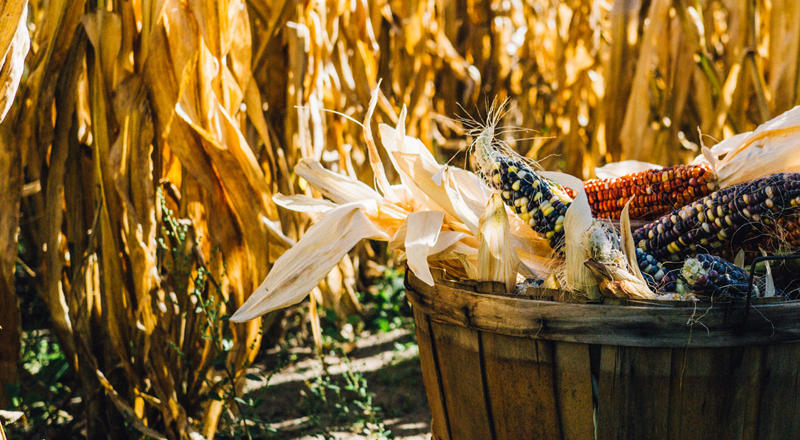Cut the B.S Wednesday – GMO, HUH?

Yesterday, I came across one of the more comprehensive and well-written articles about GMO’s that I’ve ever read. Before I share that with you, we at The Simplicity Project want to shed some light on the subject for those of you who might not know, so that if you choose to read the article, you are going into it with some base knowledge on the subject.
What exactly does “GMO” stand for?
In plain English, GMO is short for Genetically Modified Organisms, sometimes referred to as GE, or Genetically Engineered. According to the David Suzuki Foundation “[GMO’s] refer to the plants or animals created through the gene splicing techniques of biotechnology. In conversation, GMO’s and GE foods refer to the same thing. They are foods created by merging DNA from different species.”
Yes, you read that correctly – plants OR ANIMALS. The most recent GE creation, which is now available in Canada, is a Salmon that has been cross-bred with Eel DNA, and will enter your grocery store labeled as “Salmon”. The choice to buy salmon, which has been genetically engineered, is yours alone. However, these fish will not be labeled as GMO salmon. This is why choosing “WILD” fish has become more important now than ever.
Why is GMO food a problem?
This is a question that is asked time and time again. The short answer is – we don’t know what it does to our body or how it affects our food chain. GMO’s entered the food supply sometime in the 1950s, without any definitive research as to if it is good or bad for us. Because there is no quantifying evidence that proves it to be harmful, it is deemed to be safe for human consumption.
Because it has been deemed safe for consumption, governing bodies’ claim it is unnecessary for companies to label if their products contain GMO’s. This also means the produce you buy could be harvested from a GE seed, and you wouldn’t know it.
According to research conducted by Sustainable Pulse, genetically modified crops are banned in 38 countries globally. This includes Italy, Denmark, Hungary, Austria, Poland, Algeria, Turkey, Saudi Arabia, Belize, Peru, Ecuador, Venezuela, Scotland, Wales, Northern Ireland, Germany, France, The Netherlands, Greece, Russia, Bulgaria, Serbia, Croatia Slovenia, Luxembourg, Norway and Switzerland. You can view the full list here.
This leads us to the article I came across yesterday, written by the keynote speaker from our VIP event that happened this past Saturday, Meghan Telpner. You can check out the article here.
The Simplicity Project stance on GMO foods – LABEL THEM! It should always be the customer’s choice to choose if they want to consume GMO food, or if they don’t. How can we make informed choices if we don’t have the information?
The most Genetically Modified Crops:
- Soybeans
- Corn
- Canola
- Cotton
- Sugar Beets (AKA Sugar)
How to avoid GMO foods:
- Purchase Organic foods whenever possible (consult the EWG guides)
- Buy locally from farmers markets
- Ask your farmer where they get their seeds, if they use pesticides, and what their practices are
- Avoid the top GMO foods
Resources:
Read:
Read:
Read:
EWG Guides:
Watch:
http://www.gmofilm.com/ (Yes, its on Netflix)
